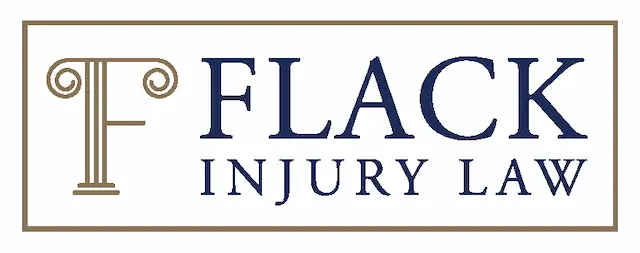
Motorcycle accidents can be traumatic experiences, and it is not uncommon for individuals involved in these accidents to develop post-traumatic stress disorder (PTSD). PTSD is a mental health condition that can develop after experiencing or witnessing a traumatic event. While most people associate PTSD with military combat, it can also occur after other traumatic events, such as a motorcycle accident.
In this article, we will explore the link between motorcycle accidents and PTSD, the symptoms of PTSD, and how to seek help if you or a loved one is experiencing PTSD after a motorcycle accident.
The Link Between Motorcycle Accidents and PTSD

The Trauma of a Motorcycle Crash
Motorcycle accidents can be incredibly traumatic experiences. The impact of a crash, the sound of screeching tires, and the fear of losing control can all contribute to the development of PTSD. Additionally, the physical injuries sustained in a motorcycle accident can also contribute to the development of PTSD.
The Risk Factors for Developing PTSD After a Motorcycle Accident
Not everyone who experiences a motorcycle accident will develop PTSD. However, certain factors can increase the likelihood of developing this condition. These risk factors include:
- Previous traumatic experiences
- A history of mental health issues
- Lack of social support
- Severity of the accident
- Involvement in a fatal accident
- Witnessing the death or injury of others in the accident
The Symptoms of PTSD
PTSD can manifest in a variety of ways, and the symptoms can vary from person to person. However, there are some common symptoms that individuals with PTSD may experience after a motorcycle accident.
Re-experiencing the Trauma
One of the hallmark symptoms of PTSD is re-experiencing the traumatic event. This can take the form of flashbacks, nightmares, or intrusive thoughts about the accident. Reminders of the accident, such as the sound of a motorcycle or the sight of a similar accident, can trigger these experiences.
Avoidance Behaviors
Individuals with PTSD may also engage in avoidance behaviors to cope with their trauma. This can include avoiding places, people, or activities that remind them of the accident. They may also avoid talking about the accident or their feelings surrounding it.
Negative Changes in Mood and Cognition
PTSD can also cause changes in mood and cognition. This can include feelings of guilt, shame, or anger related to the accident. Individuals may also experience difficulty concentrating, memory problems, and a loss of interest in activities they once enjoyed.
Hyperarousal
Hyperarousal is another common symptom of PTSD. This can manifest as difficulty sleeping, irritability, and an exaggerated startle response. Individuals may also experience physical symptoms such as headaches, stomachaches, and muscle tension.
Seeking Help for PTSD After a Motorcycle Accident
If you or a loved one is experiencing symptoms of PTSD after a motorcycle accident, it is essential to seek help from a mental health professional. PTSD is a treatable condition, and with the right support, individuals can learn to manage their symptoms and improve their quality of life.
Therapy
Therapy is a common treatment for PTSD. A therapist can help individuals process their trauma and develop coping mechanisms to manage their symptoms. Cognitive-behavioral therapy (CBT) is a particularly effective form of therapy for PTSD, as it focuses on changing negative thought patterns and behaviors.
Medication
Doctors may prescribe medication like antidepressants and anti-anxiety meds to help you manage PTSD symptoms. Many of the symptoms include anxiety, depression, and sleep issues.
Support Groups
Support groups can also be a valuable resource for individuals with PTSD. Connecting with others who have experienced similar traumas can provide a sense of understanding and support. Support groups can also provide a safe space to share experiences and learn coping strategies from others.
Preventative Measures: PTSD After a Motorcycle Accident
You can take steps to lower your risk of getting PTSD after a motorcycle accident, even though you can’t prevent all accidents.
Wear Protective Gear
Wearing proper protective gear, such as a helmet, can reduce the severity of injuries sustained in a motorcycle accident. This can also help individuals feel more in control and less traumatized by the accident.
Seek Support
After a motorcycle accident, it is essential to seek support from friends, family, and mental health professionals. Talking about the accident and processing the emotions surrounding it can help prevent the development of PTSD.
Practice Mindfulness

Practicing mindfulness techniques, such as deep breathing and meditation, can help individuals manage their anxiety and stress after a motorcycle accident. These techniques can also help individuals stay present and avoid re-experiencing the trauma.
Conclusion
In conclusion, it is possible to develop PTSD after a motorcycle accident. The trauma of the accident, combined with other risk factors, can contribute to the development of this condition. However, with the right support and treatment, individuals can learn to manage their symptoms and improve their quality of life. If you or a loved one is experiencing symptoms of PTSD after a motorcycle accident, do not hesitate to seek help from a mental health professional.
